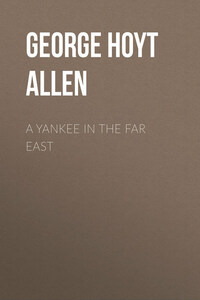There are so many ways suggested these days by the various periodicals on how to make money at home, it would seem that all ingenuity in that direction must be exhausted; but how to make money abroad seems to me to be almost a virgin field.
New pastures have always interested me, and if I can add to the sum of human happiness by a wise suggestion, and point the way to satisfy an almost universal longing to see the world, – for instance, if I can show how one can make a luxurious world tour and come out ahead of the game while doing it, – I shall be only too glad.
It's no new trick to beat one's way around the world with the hardships attending such an enterprise, but to tell how to do it in ease and luxury surely ought to earn me the gratitude of my fellow-men.
Get a bunch of pencils and some pads of paper and announce to a waiting editorial world that you are about to take a trip around the globe, and that you propose to write some letters of travel and syndicate them. That, for a consideration, you'll let some good papers print 'em.
Don't be modest about naming a good round price for the consideration of letting your papers in. Because you'll need the money.
All editors you'll find are hankering for letters of travel.
Letters of travel are a novelty. The first editor you call on early in the morning, say about ten o'clock (that's early enough to get to work in this new enterprise I'm tipping you off to – gone is grinding toil and worry – let others moil), this first editor of some big daily (big dailies are the easiest) – don't be timid – brace right up to him, and give him your proposition in a nutshell – easy-like – right off the bat.
It will be a pleasure to you to watch him brighten up at your offer.
Managing editors of big dailies are hard-worked men.
Atlas' job (merely physical) is easy compared with the mental strain and worry the managing editor of a big daily paper is subjected to these days.
You'll find him feeling the need of something – it's travel dope.
Don't be too arbitrary with him when he inquires in a tentative, anxious way, as he is about to affix his signature on the dotted line in your contract: "Of course no other paper in our town gets these letters?"
Assure him he will have exclusive use in his town. One paper in a town is enough, if you select the biggest and best one.
If (an almost impossible contingency) there should be any hesitancy on the part of the editor in grabbing your offer, if it seems to you that the price may be giving him pause, don't make the mistake of cutting the price. Tell him you may (don't promise for sure, – it won't be necessary, – a hint will be enough), tell him you may run a little poetry into your letters – that poetry comes easy for you to write – a sort of a fambly gift.
Don't stall, for fear you can't write poetry. You can do it if you think you can. It's dead easy.
Newspapers are just crazy for poetry – so crazy for it that lots of them will buy it when every line don't begin with a capital – where the poet ends a sentence right in the middle of a line, puts a period there, and just to beat the compositor out of a little fat starts a new verse after that period.
Why, they will buy poetry where the reader will get half through the piece before he discovers that it is poetry, and after he has caught the swing he will start at the top and begin over, and go clear to the end every time, and feel good over it.
This is where this kind of poetry differs from patent medicine advertisements.
In the latter, when the poet begins to advise the use of a new brand of pills, when the poet's ulterior motive begins to crop out, you stop reading, get mad, and want to swat the poet.
The paper gets paid for printing the pill poem. It is in cahoots with the poet to put one over on the public, but it pays money for the kind of poetry I have described.
I'm glad I thought to post you about the poetry, because it's just barely possible that the editor may be contemplating a trip himself, in which case his paper won't want your stuff, —he will send in some articles; or that his brother, or his sister, or his cousin, or his aunt, all of them gifted writers, are now on the bounding billows, en route for foreign parts, armed with pencils and pads; or that even now one of the paper's big advertisers is in Europe, and some travel stuff he is writing is just beginning to arrive and space must be found for it somewhere (it's just barely possible, I say barely, that that is one of the editor's problems as you drop in on him at 10 A. M.), so don't forget about the poetry.
This is important, because if you do, in all probability the next issue of that paper will have a scoop in a news story headed: – "Mysterious and Brutal Murder! Unknown Man Found Mutilated Beyond All Possibility of Identification! No Clue to the Perpetrators!"
So, after you've made your offer, and before the editor has time to draw his gun or grab an axe, tell him you can write poetry, which, when set in his paper, will at first sight look just like Johnnie's composition on Spring.








